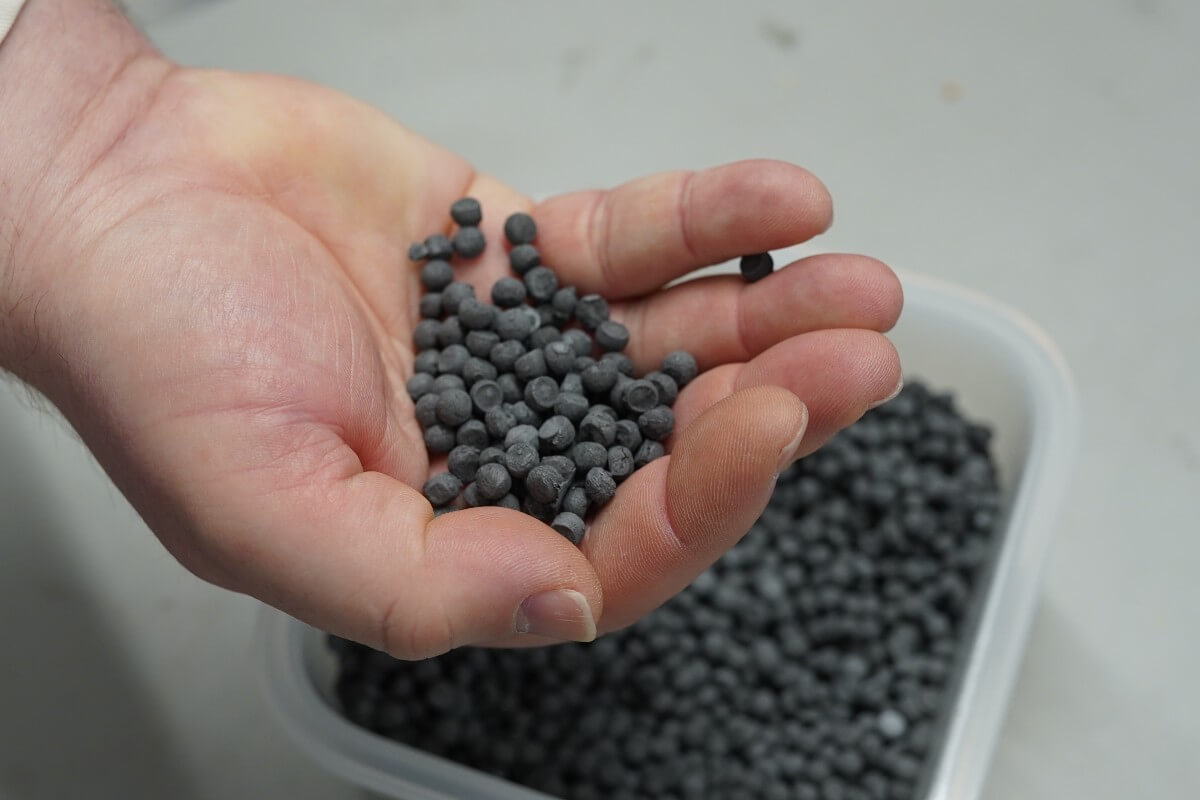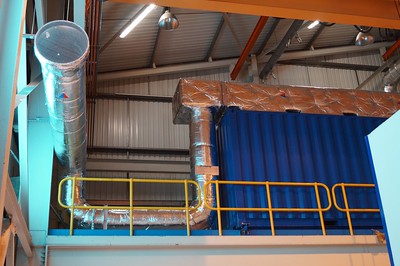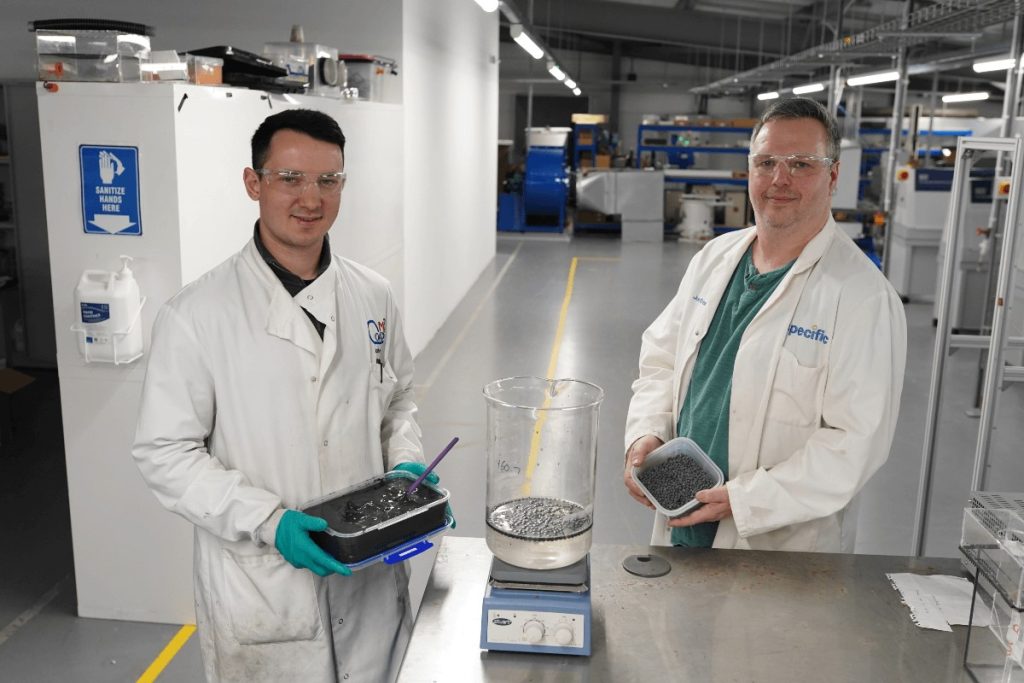
Thermal Storage Research
Heating space and water in buildings accounts for about ¼ of all energy consumption. Heating is therefore the biggest challenge in providing affordable low carbon energy.
SPECIFIC’s thermal storage research enhances UK research and development of heat storage as an off-grid gas-replacement technology. We are currently leading thermochemical energy storage research for seasonal (summer to winter) and mobile applications. Our focus is on the capture, storage and release of heat energy from the sun and industrial waste heat.
Our thermochemical energy storage system uses Salt in Matrix (SIM), an Active Material. This material stores thermal energy (heat) through a thermochemical process. Firstly, heat is stored by passing hot air over the Active Material, creating a chemical reaction that locks the energy into the material. Then, to release the heat, an exothermic reaction is triggered by passing humid air over the material. Provided the Active Material is kept dry it can store the heat indefinitely. It is therefore suitable for seasonal thermal energy storage and for transporting heat from one location to another.
The thermal storage research team at SPECIFIC is exploring a range of commercial applications of the Active Material. For instance: providing heat to large buildings as a substitute for gas; storing and transportating industrial waste heat; and drying agricultural produce. Our researchers undertake this work in partnership, across our laboratories in the Pilot Manufacturing Research Centre, at scale in the Solar Heat Energy Demonstrator building and on industrial and agricultural sites across Wales and the UK.
One of these partnerships is the MESH project (Mobile Energy Storage as Heat). MESH is working with Tata Steel UK to investigate and optimise the capture, storage and release of heat from industrial waste air streams using thermochemical energy storage.
MESH Research Lead: Dr Jonathon Elvins | Funded by: FlexisApp | Partner: Tata Steel UK | Swansea University | University of South Wales | Cardiff University
Collaborators: University of Birmingham, International Energy Agency, Goat Nutrition, Rotaheat

